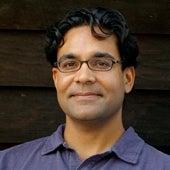Ignorant Voters or Credible Representatives?: Why Voters Support Criminal Politicians in India
3600 Market Street, Suite 560 (5th floor)
University of Pennsylvania
Philadelphia, PA 19104
The coexistence of democratic elections and corrupt or criminal legislators poses a quandary for social science. Two divergent hypotheses have been advanced to explain this apparent paradox: information asymmetries facing voters and the enhanced credibility of tainted politicians, which is often filtered through an identity politics lens. In this lecture, Drs. Vaishnav and Sircar adjudicate between these explanations, drawing on a large social attitudes survey from India, a consolidated democracy that features high rates of criminality in politics. Their results support a credibility narrative, one that situates the credibility of bad politicians in the context of deep social divisions.
Co-sponsored with Political Science Department Comparative Politics Seminar.


